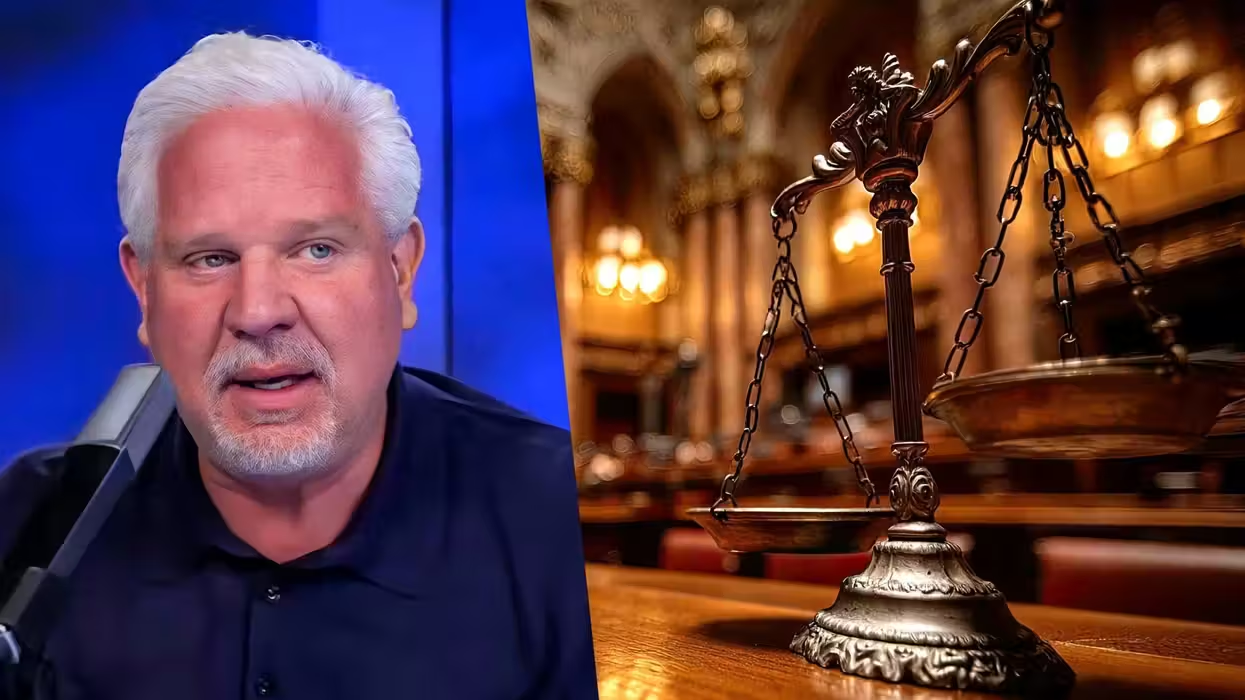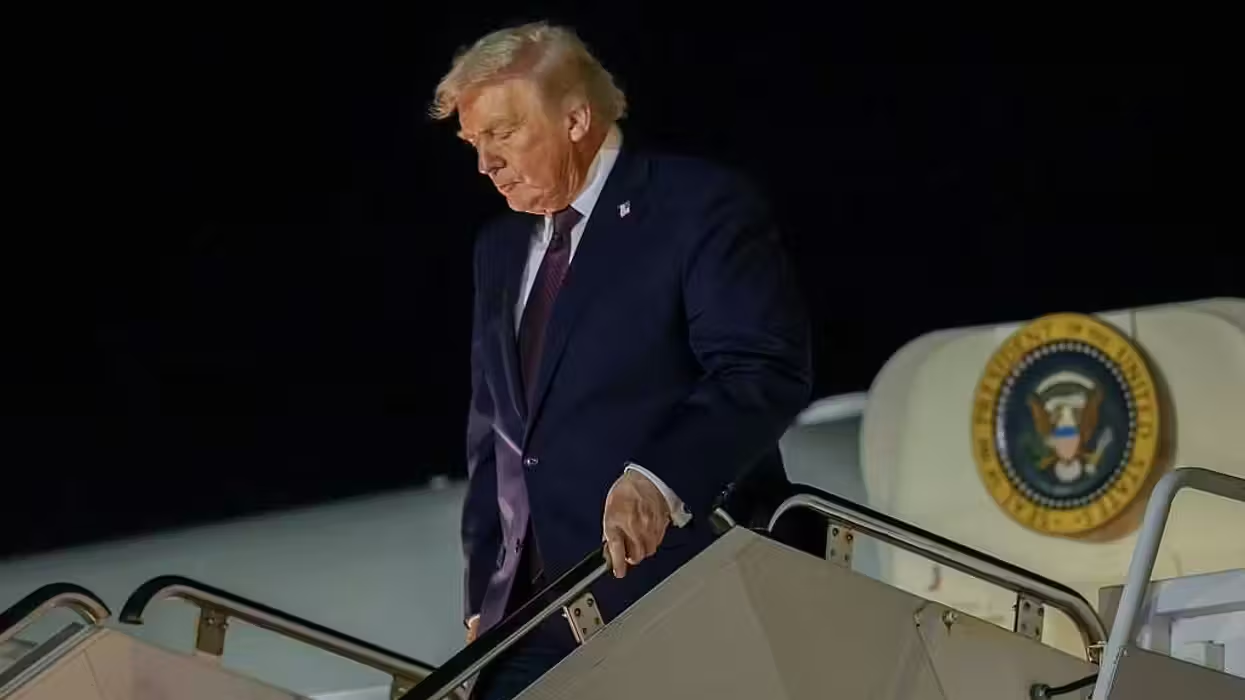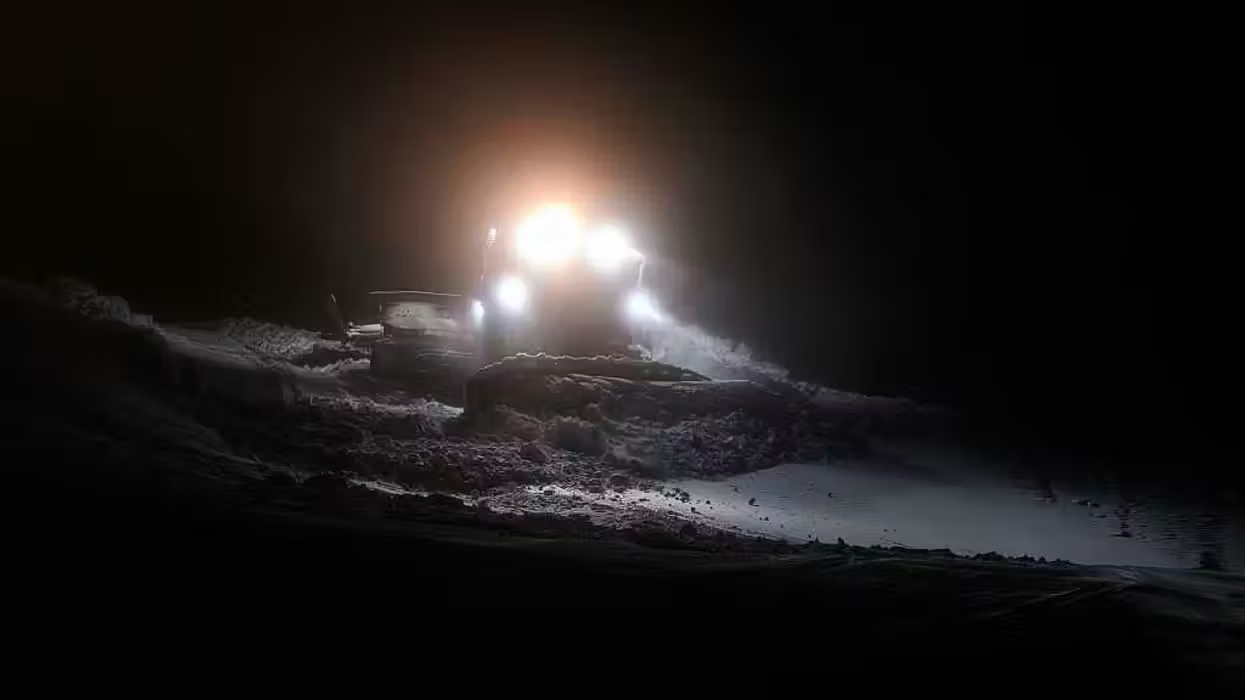
© 2025 Blaze Media LLC. All rights reserved.
President Obama made a historic visit to Germany this week, sounding more like a candidate with a mandate to lead instead of a president approaching his lame-duck era.
President Obama made a historic visit to Germany this week, sounding more like a candidate with a mandate to lead instead of a president approaching his lame-duck era. During an address to an audience frustrated with U.S. national security policies, the president said the real threat for the 21st Century was climate change. Last year's Hurricane Sandy struck the U.S. East Coast with enough strength to bring most of New York City to its knees and was said to have formed over Atlantic waters that were unseasonably warm. Obama said bold action was needed to take on the best Mother Nature has to offer. A report from the World Bank published before his speech said he better be serious.
 US President Barack Obama speaks in front of the Brandenburg Gate at Pariser Platz in Berlin, Germany, Wednesday June 19, 2013. Appealing for a new citizen activism in the free world, President Barack Obama renewed his call Wednesday to reduce U.S. and Russian nuclear stockpiles and to confront climate change, a danger he called "the global threat of our time." (Photo: AP/dpa,Marcus Brandt)
US President Barack Obama speaks in front of the Brandenburg Gate at Pariser Platz in Berlin, Germany, Wednesday June 19, 2013. Appealing for a new citizen activism in the free world, President Barack Obama renewed his call Wednesday to reduce U.S. and Russian nuclear stockpiles and to confront climate change, a danger he called "the global threat of our time." (Photo: AP/dpa,Marcus Brandt)
Obama said the United States is taking the lead in terms of renewable energy. Carbon emissions are down, the use of renewable energy is up and there are more fuel-efficient cars on U.S. roads. A recovering U.S. economy, meanwhile, means energy consumption is on the rise and with that comes greater concerns about environmental well-being. Storms like so-called Superstorm Sandy, he said, are the face of the new environmental future.
"This is the global threat of our time. And for the sake of future generations, our generation must move toward a global compact to confront a changing climate before it is too late," he said. "That is our job. That is our task. We have to get to work."
A World Bank report published last year warned the global average temperature was on pace to increase by 4 degrees Celsius (7.2 degrees Fahrenheit) by the end of the century without some form of concrete action on climate issues. The European Union is debating low-carbon policies for 2030, though the economic crisis in the eurozone is hampering efforts to reach 2020 benchmarks for renewable energy and emissions. Even if Obama exaggerated U.S. progress, the United States is making a contribution to a low-carbon economy in its own right.
On the other hand, the United States is taking the lead in terms of oil production. The oil industry expects U.S. oil production to hold steady above 7 million barrels per day for 2013. The International Energy Agency said it expected North American oil production to account for more than 60 percent of the gains seen from outside the 12-member OPEC cartel. The U.S. Interior Department plans to hold its first-ever lease for wind energy development off the East Coast next month. The U.S. Energy Department, however, said an increase in Asian demand for energy translated to a record high for March in terms of coal exports from the United States.
World Bank President Jim Yong Kim said climate forecasts present an "alarming scenario" for the international community. Rising sea levels threaten the livelihoods of Southeast Asian economies that depend on their coasts to survive. About 40 percent of the arable land in Sub-Saharan Africa, meanwhile, won't be able to support crops because of rains and warmer temperatures inland. Kim said developing countries were paying the price for the carbon-intensive practices of a few countries.
Obama is expected to roll out a major climate policy that may include EU-style benchmarks for renewable energy and greenhouse gas emissions. The World Bank chief, in his report issued before Obama's announcements in Berlin, said he was taking major economies to task.
"We are determined to work with countries to find solutions," Kim said. "But, the science is clear. There can be no substitute for aggressive national mitigation targets, and the burden of emissions reductions lies with a few large economies."
More From OilPrice.com
- Developing Countries Lead the Way in Renewable Energy Investment
- As Climate Change Worsens, US Corn Ethanol becomes Uneconomical
--
More Contributions From TheBlaze:
Want to leave a tip?
We answer to you. Help keep our content free of advertisers and big tech censorship by leaving a tip today.
Want to join the conversation?
Already a subscriber?
more stories
Sign up for the Blaze newsletter
By signing up, you agree to our Privacy Policy and Terms of Use, and agree to receive content that may sometimes include advertisements. You may opt out at any time.
Related Content
© 2025 Blaze Media LLC. All rights reserved.
Get the stories that matter most delivered directly to your inbox.
By signing up, you agree to our Privacy Policy and Terms of Use, and agree to receive content that may sometimes include advertisements. You may opt out at any time.






